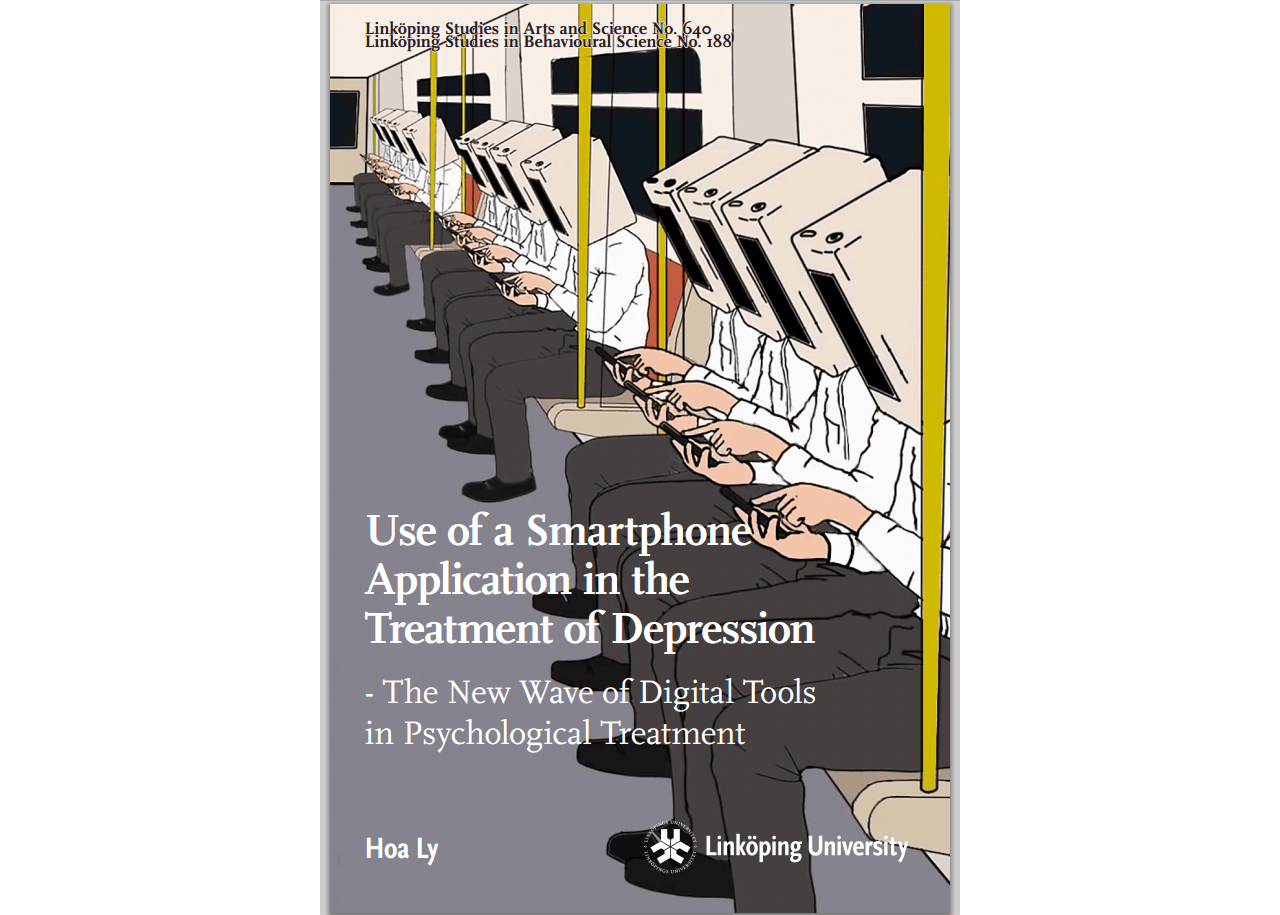Today the psychologist and PhD student Hoa Ly will most likely receive his PhD degree. In Sweden the PhD defence is a public event. The supervisors have been Gerhard Andersson and Per Carlbring.
Starting today at 13:00 at the Department of Behavioural Sciences and Learning at Linköpings university Hoa will present his thesis. The thesis is entitled “The Use of a Smartphone Application in Depression Treatment – The New Wave of Digital Tools for Psychological Treatment“.
Most interestingly will be when he defends his work in a discussion with an external opponent. The opponent is the well known British researcher Professor Ed Watkins from University of Exeter i England.
This is the PhD thesis abstract:
Internet-delivered programs based on cognitive behavior therapy (CBT) have during the past decade shown to work in an effective way for the treatment of depression. Due to its accessibility and independence of time and location, smartphone-based CBT might represent the next generation of digital interventions. Depression is an affective disorder that affects as many as 350 million people worldwide. However, with CBT, depression can be treated, but access to this treatment is scarce due to limited health care resources and trained therapists. As a result of this, health care could highly benefit from the use of smartphones for delivering cost-effective treatment that can be made available to a large part of the population who suffer from depression. One treatment that should be especially suitable for the smartphone format is behavioral activation (BA), since it has strong empirical support as well as the benefits of being flexible and rather simple.
The overall aim of the thesis was to test and further develop a BA smartphone application, as well as to build a method for how this smartphone application could be used in a comprehensive and effective way in depression treatment. To fulfill this aim, four studies were conducted. The results showed that smartphones have the ability to be used in an effective way in the treatment of depression, including as an add-on to traditional face-to-face sessions. The results also showed that the smartphone format was experienced as a portable and flexible way of accessing the treatment – and thus could be more present in everyday life.
In conclusion, there is reason to believe that smartphones will be integrated even further in society and therefore may serve an important role in future mental health care. Since the first indications reveal that depression can be treated by means of a supported smartphone application, it is highly possible that applications for other mental health problems will follow. Furthermore, in this thesis, the same smartphone application has been tested in three different ways and there is potential to apply smartphones in a range of other formats, such as in relapse prevention and as a way to intensify treatment during periods when needed. From a psychiatric research point of view, as my research group has been doing trials on guided internet treatment for more than 15 years, it is now time to move to the next generation of information technology – smartphones.
[lightbox link=”http://www.carlbring.se/wp/wp-content/uploads/2015/03/HoaLy_efterdisputation.jpg” thumb=”http://www.carlbring.se/wp/wp-content/uploads/2015/03/HoaLy_efterdisputation-768×1024.jpg” width=”768″ align=”left” title=”Dr Hoa Ly and the board of examiners, the opponent and the two supervisors.” frame=”true” icon=”image” caption=”Dr Hoa Ly and the board of examiners, the opponent and the two supervisors.”]
